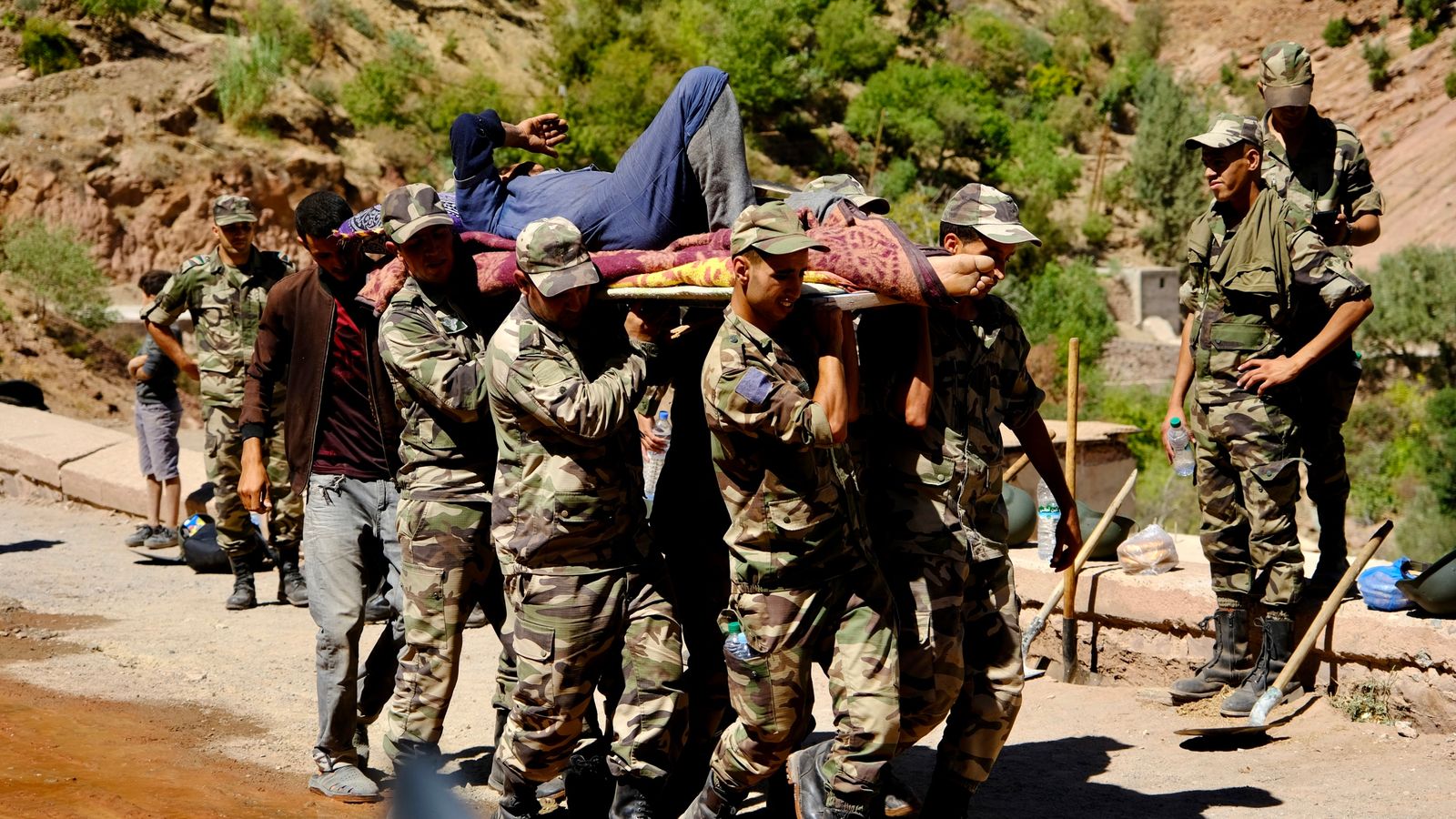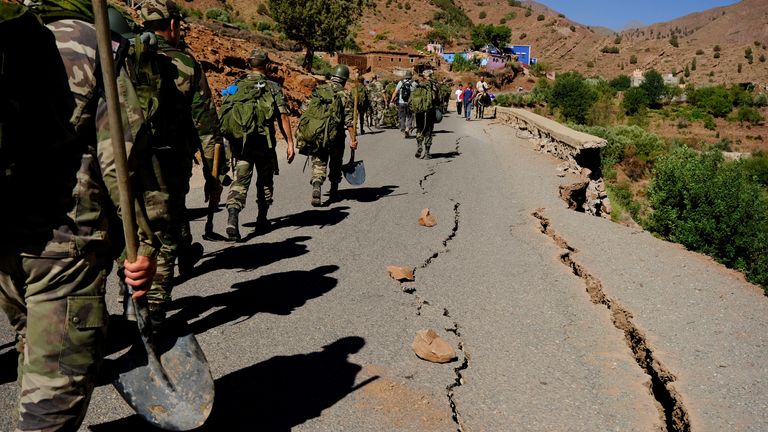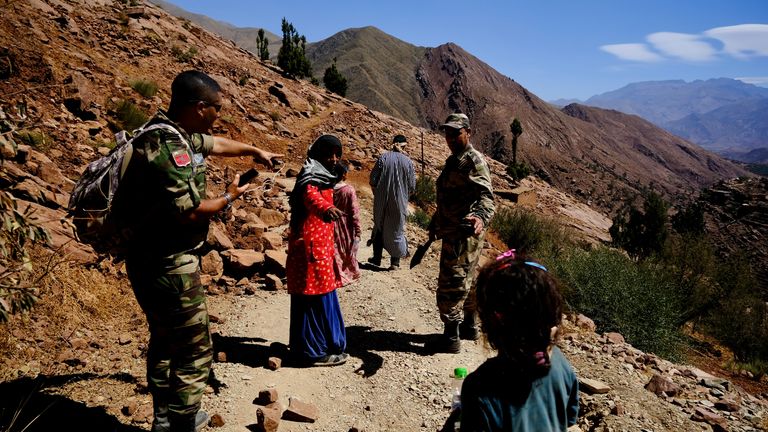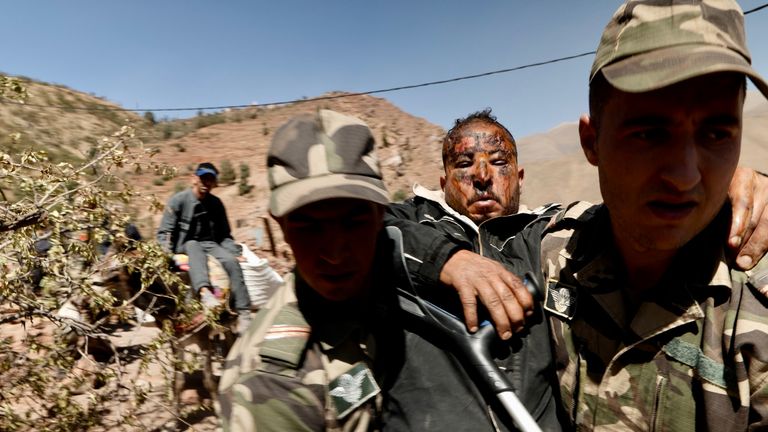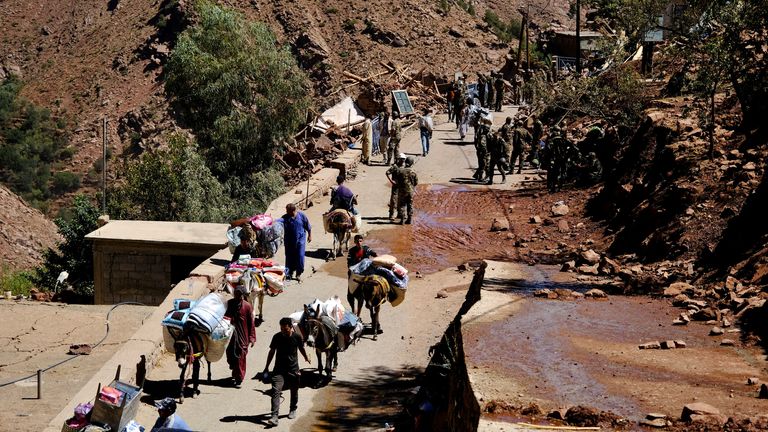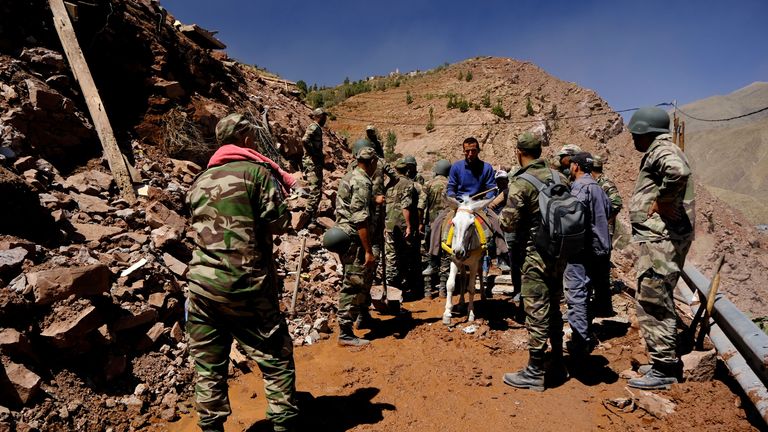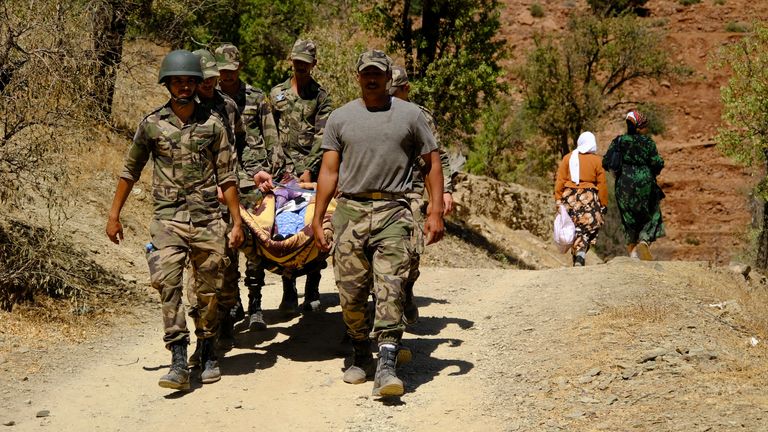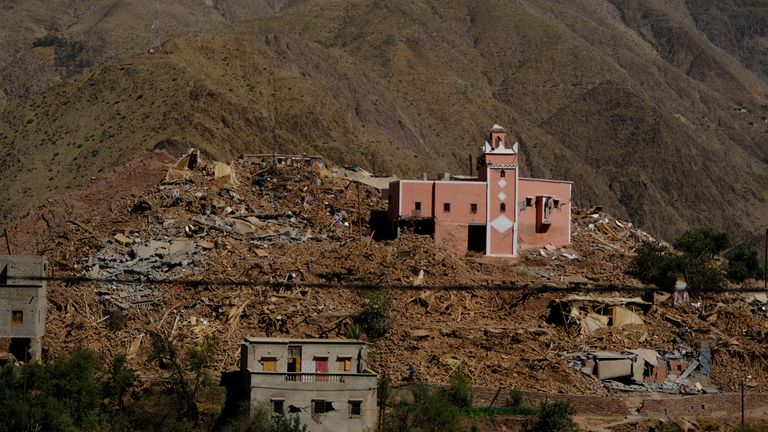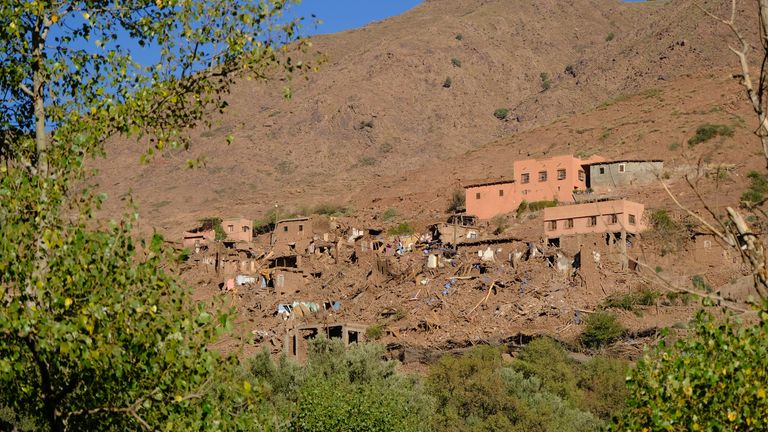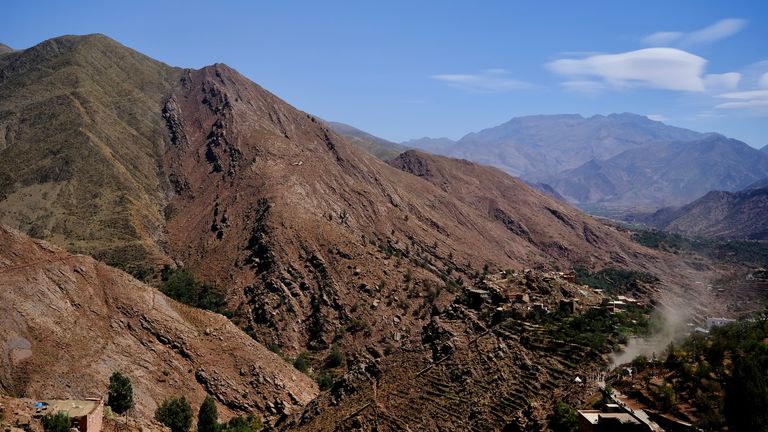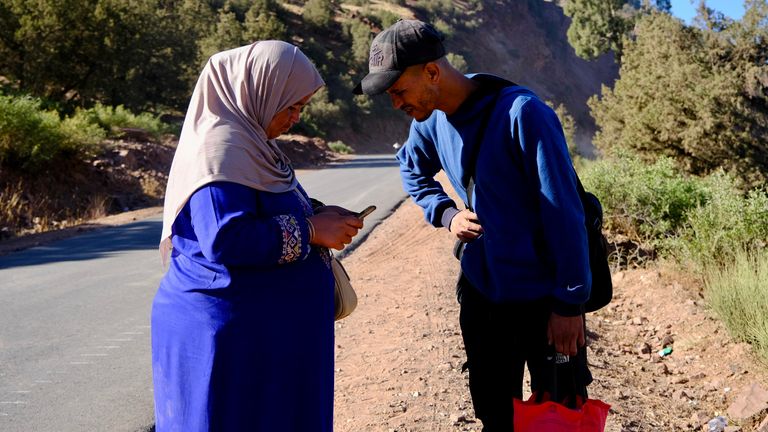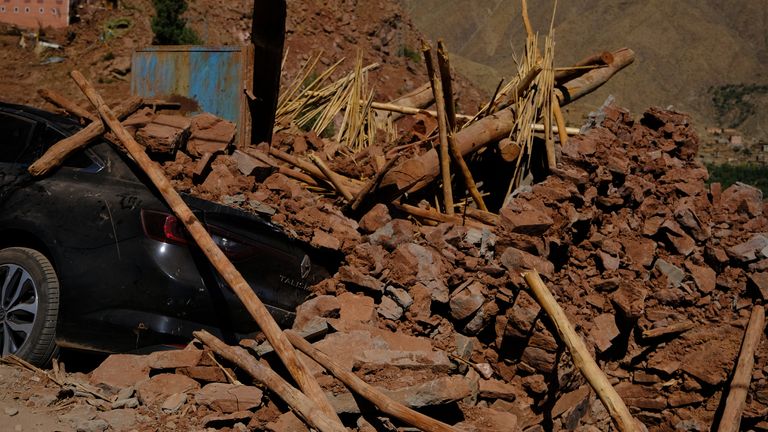At the top of a mountain surrounded by quite breathtaking destruction I did not expect to see survivors of this deadly earthquake.
A shout went up and a young man, badly bruised with bloodshot eyes, barely conscious and covered in dust, was carried down the mountain road past me.
Within minutes more survivors started to emerge. Carried on stretchers or held up by soldiers, holding on to life after being cut off for days.
CCTV shows moment earthquake struck – latest updates
The rescued were put into trucks to begin a journey down the mountain to the valley floor and medical treatment.
Many believed it would take a miracle to survive up here – it was a day of miracles.
It was also proof if any was needed that the rescue effort here – while imperfect – simply must go on and even grow, because in these mountains there are survivors in dozens of communities, they just need to be found.
Some of those who survived had given up waiting. As we hiked through the mountain passes, we came across families carrying whatever they could as they walked.
Some have been walking for a whole day just to get to towns that themselves had only just been reached hours earlier to look for help and get whatever emergency supplies they could find.
The survivors all have terrible stories of fear and loss. Many had to dig their own family members out of the rubble by hand.
One father told me: “My house fell down, gone, it collapsed on me and my family, I rescued my two daughters and their mother, but I lost my other two children, and I have no furniture, nothing left.”
He cried as he held his two surviving girls before he said goodbye and walked off with his family, heading down the steep mountain pass.
Read more:
Race against time as number killed nears 2,700
Inside ‘ripped apart’ tourist town ‘expecting 2,000 dead’
Speed of rescue operation criticised
The speed of the rescue operation has been criticised here.
For many in these remote areas it was too late. One woman, angry and with tears flooding down her face, told me the villagers could hear people’s cries under the rubble, but nobody came.
They did what they could, but they didn’t have the right equipment. She says if help had come earlier, those trapped beneath the rubble would have lived.
The military is still having to deliver aid by helicopter because many roads are impassable.
I watched as a Chinook helicopter dropped aid so low the wash from its rotor blades destroyed what was left of a home already damaged in the earthquake.
People standing next to us shouted: “No, no, no!”
The military has realised that with the mountain road so dangerous and impassable, they have no choice but to deploy the army on foot.
I joined them as they began their missions to reach towns and villages that still have nothing, and we soon discovered wherever they could get to there were people in desperate need of help.
‘There is no place left to stay’
Nezha ait Bouderek, 27, and her husband Rachid Ajakan, 38, said they just couldn’t stay in their village.
She’s nine months pregnant and couldn’t have the baby in the ruins, she was only staying with her parents to have her baby. She had come here from Casablanca and was caught up in the earthquake.
“I came with him today because there is no place left to stay,” she said, looking at her husband.
Speaking through her tears she explained she doesn’t know what happened to her family.
“I left my parents there in the village, I don’t know if they will be alive or not, I don’t know if I will see them again or not, and my brothers and sisters also…”
There are dozens more villages and towns like the ones we reached, battered and without power or water.
And when the rescuers arrive the last survivors are taken away. But very soon they might not find anyone else to rescue.
This story originally appeared on Skynews

